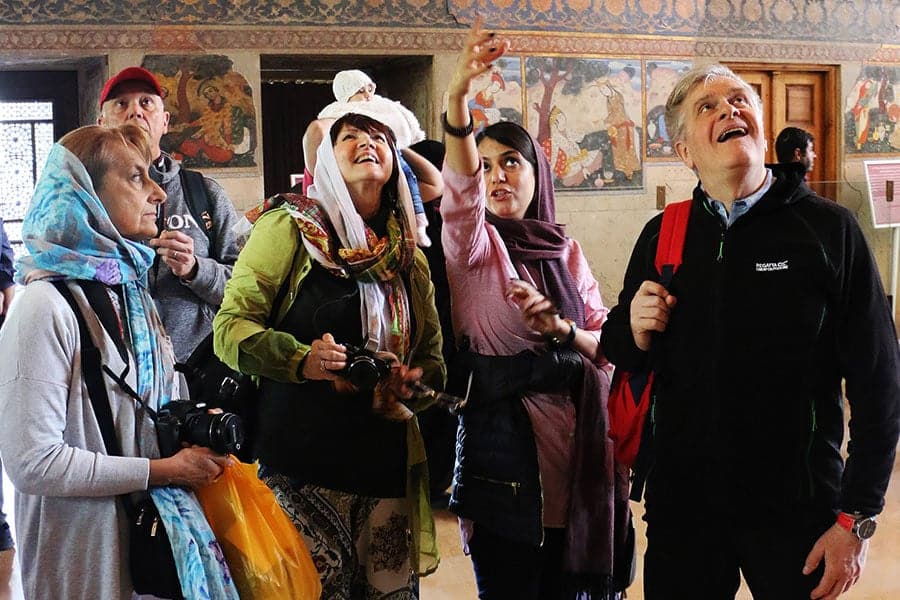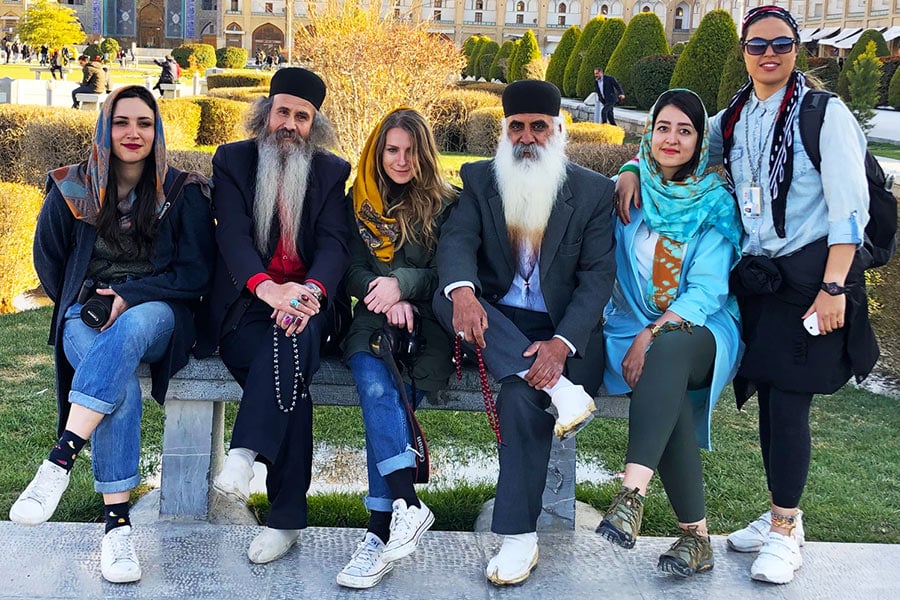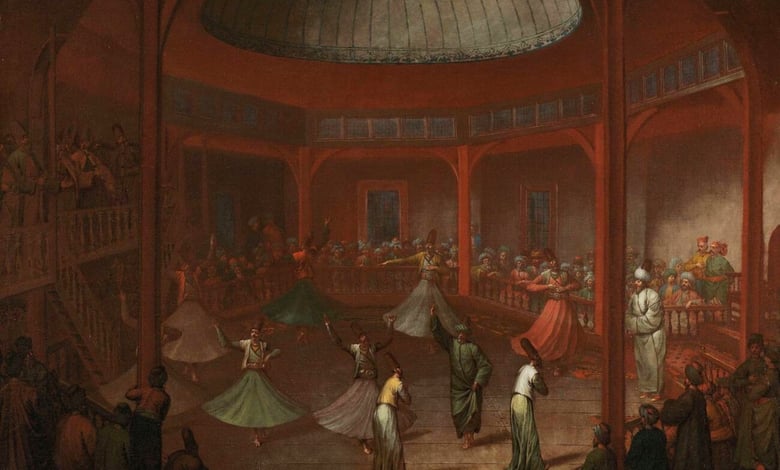
Jalāl al-Dīn Muḥammad Rūmī, more commonly known as Rumi, is a towering figure in the literary and spiritual history of the world. Born in the 13th century, his influence transcends cultural and national boundaries, recognized globally for his profound poetry and insights into the human soul and its connection to the divine. This article aims to provide a detailed exploration of Rumi’s life, his works, his teachings, and his enduring legacy that continues to inspire millions around the world.
Contents
Early Life and Education
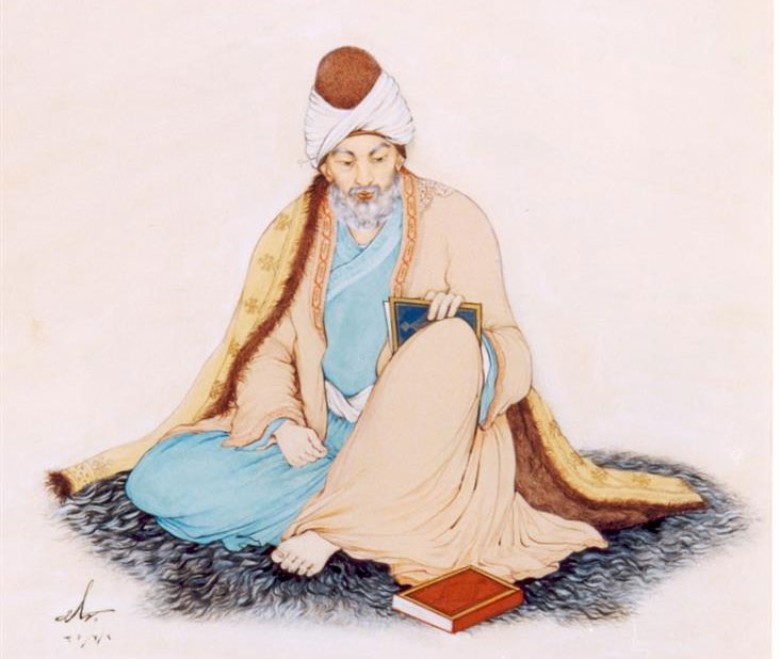
Rumi was born on September 30, 1207, in the city of Balkh, then part of Greater Khorasan in present-day Afghanistan. He was born into a family of learned theologians. His father, Bahā’ ud-Dīn Walad, was a theologian, jurist, and a mystic of high standing, who significantly influenced Rumi’s early religious and philosophical education.
From an early age, Rumi demonstrated an extraordinary intellect, absorbing the religious and mystical teachings from his environment. By the time his family decided to move westward, escaping the Mongol invasions, Rumi had already established a foundation in spiritual thought and poetic expression, which would later flourish in Konya, where he spent the majority of his life.
The journey from Khorasan was not merely a physical relocation but a transformative passage for Rumi, exposing him to a broad spectrum of scholarly and mystical traditions which enriched his intellectual growth. This blend of encounters would lay the groundwork for his later philosophical and literary contributions.
By examining Rumi’s beginnings, we can trace the influences that shaped his thoughts and works, providing insights into the origins of his universal appeal. This foundation is crucial for understanding the depth and breadth of his impact on both Eastern and Western cultures.
Move to Konya

Circumstances Leading to the Migration
The migration of Rumi and his family from Balkh to Konya was propelled by the imminent threat of the Mongol invasions sweeping across Central Asia. In 1215, they embarked on an extensive journey that took them through several cities, including Baghdad, Mecca, and Damascus, before finally settling in Konya, which was then part of the Seljuk Empire’s territory. This migration was not only a quest for safety but also a pivotal journey that exposed Rumi to diverse intellectual traditions and cultures. These experiences deeply enriched his understanding of spiritual and philosophical subjects.
Life and Developments in Konya
Upon their arrival in Konya, Rumi found an environment ripe for spiritual and intellectual growth. Konya was a vibrant center of learning and spirituality, with a dynamic community of scholars and mystics. Rumi’s father quickly established a madrasa in Konya, where Rumi continued his studies in religious sciences under his father’s guidance and later from his father’s successor, Sayyid Burhan al-Din Muhaqqiq Tirmidhi.
This period was crucial for Rumi. Here, he transformed from a scholar of religion into an unparalleled mystic and poet. His poetry began to reflect deeper spiritual themes and his teachings attracted followers from all over the region. It was also in Konya that Rumi met Shams of Tabriz, whose profound influence on Rumi would catalyze some of his most significant works, including the famous Masnavi. This meeting marks a turning point in Rumi’s life, igniting the ecstatic and mystical dimensions of his poetry that are celebrated worldwide today.
Meeting with Shams of Tabriz

Introduction to Shams of Tabriz
In November 1244, Rumi‘s life took a transformative turn with the arrival of Shams of Tabriz in Konya. Shams was a wandering mystic, whose profound spiritual presence and unconventional approach to the divine captured Rumi’s interest. Their first meeting is famously characterized by a deep, instantaneous connection that significantly altered the course of Rumi’s life and works. Shams was not only a mystic but also a spiritual provocateur, challenging Rumi’s previous understandings and pushing him toward a deeper exploration of spiritual and mystical realms.
Impact of Shams on Rumi’s Life and Works
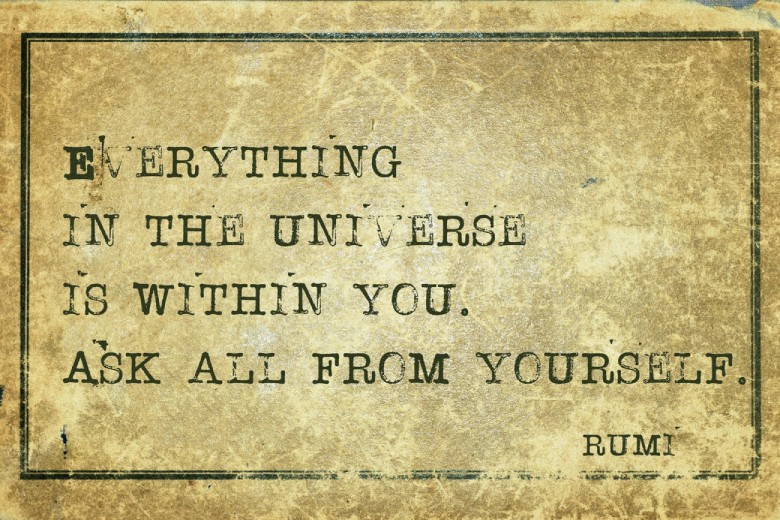
The impact of Shams on Rumi was profound and multifaceted, affecting both his personal development and his creative output. Before meeting Shams, Rumi was primarily known as a scholar and teacher, but Shams awakened in him a torrent of creativity and inspiration that led to some of his most passionate and renowned poetry. This period marked by their friendship saw the creation of the Divan-e Shams-e Tabrizi, a collection of over 40,000 verses of poetry that Rumi attributed to his encounters with Shams.
Shams’s influence deeply intensified Rumi’s exploration of the themes of divine love and ecstasy. The mystic’s sudden disappearance and eventual presumed death devastated Rumi but also led him to a new phase of spiritual maturity. Rumi’s grief transformed into a broader, universal longing for the divine, a theme that would permeate his later works, particularly the Masnavi, which is often referred to as the “Quran in Persian” by many scholars.
The relationship between Rumi and Shams is a testament to the transformative power of spiritual companionship and love. It illustrates how profound connections can inspire unparalleled artistic and spiritual growth, positioning Rumi as a timeless beacon of mystical poetry and Sufi practice. The legacy of their relationship continues to inspire and resonate with audiences around the globe, underscoring the universal themes of love, loss, and the pursuit of transcendence.
Literary Contributions

Overview of Rumi’s Major Works
Rumi‘s literary output is both vast and profound, encompassing various genres and forms that continue to be studied and revered. His major works include the Masnavi and the Divan-e Shams-e Tabrizi, which together encapsulate the essence of his spiritual and poetic vision.
The Masnavi, often referred to as the “spiritual Quran” or “Quran in Persian,” is a six-book epic of approximately 25,000 verses. It is a monumental work that explores the deeper dimensions of Sufism, philosophy, and the quest for divine love. This work is not just a collection of stories but a comprehensive exposition on the human experience, the mysteries of life, love, and the pursuit of the divine.
The Divan-e Shams-e Tabrizi is another crucial work, attributed to the inspiration Rumi derived from his mystical companion Shams of Tabriz. Comprising over 40,000 verses, this collection is filled with lyric poems that include ghazals (lyric poems) and rubaiyat (quatrains), reflecting the intense emotional and spiritual communion between Rumi and Shams.
Themes and Styles Explored in His Poetry
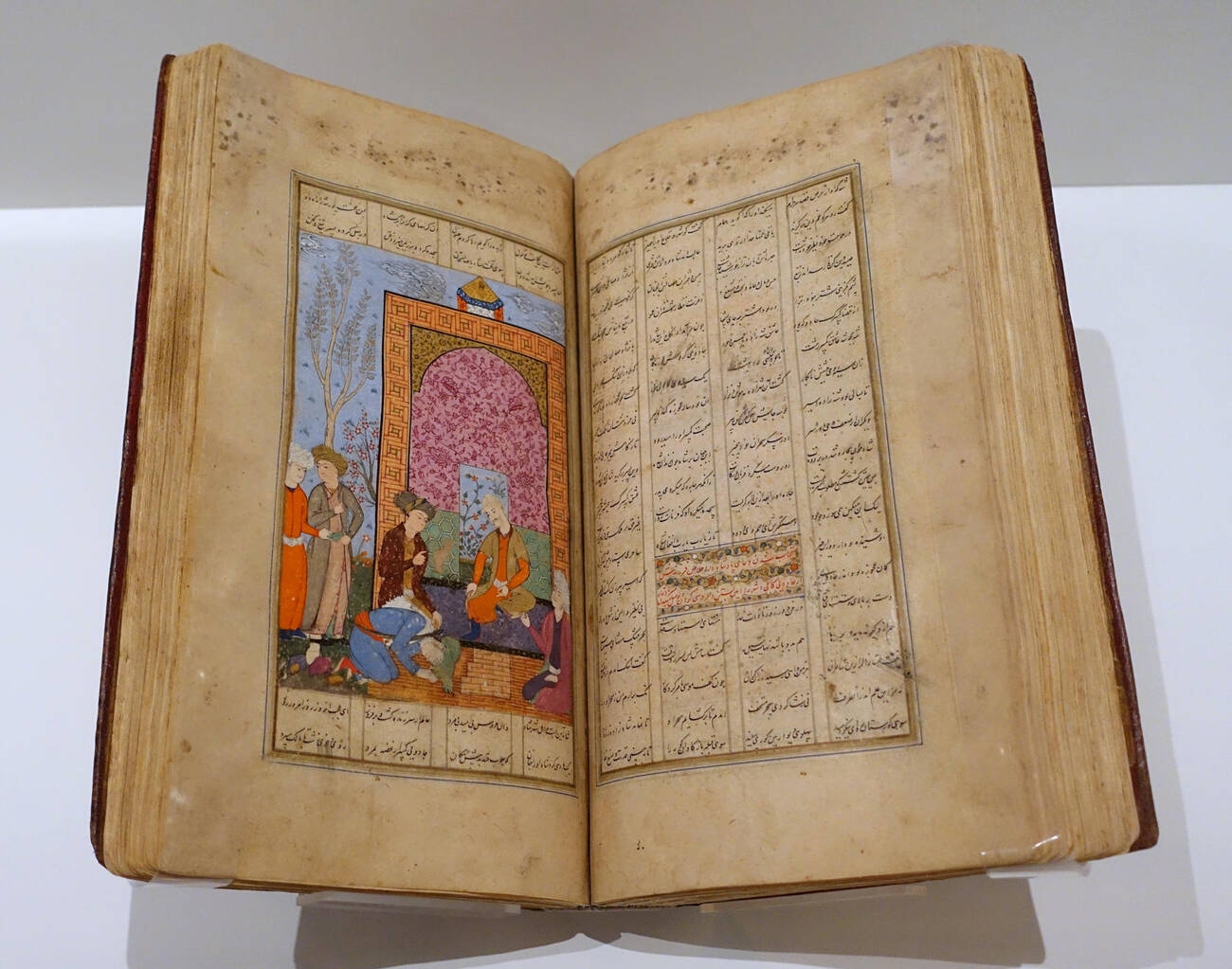
Rumi’s poetry is renowned for its dynamic and innovative use of language and form, which convey complex spiritual truths in an accessible and universally appealing manner. His themes are deeply philosophical and range from the pain of loss and separation to the bliss of union and transcendence. Central to his work is the concept of love—both earthly and divine—which Rumi portrays as the ultimate force capable of leading humanity to reunion with the divine.
Rumi often employs metaphors and symbolic imagery to express his insights, drawing on natural elements like the wind, water, and fire to symbolize spiritual states and processes. His style is characterized by an openness and inclusiveness, inviting readers of all backgrounds to partake in the spiritual journey he narrates. This poetic form is not just a means of artistic expression but a vehicle for spiritual teaching and contemplation, designed to awaken the reader’s heart and mind to the deeper realities of existence.
Philosophy and Teachings

Key Philosophical Concepts
Rumi‘s philosophy revolves around concepts that delve deep into the essence of human existence and our relationship with the divine. Central themes such as love, ecstasy, and unity with the divine are recurrent throughout his works, illustrating his belief in the transformative power of love as a means to reach spiritual enlightenment and union with the divine.
Love is perhaps the most pivotal theme in Rumi’s teachings, portrayed not just as a simple emotion but as the very foundation of the universe. Rumi suggests that love is the force that propels every atom in creation, leading souls back to their ultimate origin, which is God. This concept transcends physical and metaphysical boundaries, advocating for a love that dissolves the ego and fosters a profound connection with all beings.

Ecstasy, in Rumi’s context, refers to the spiritual joy and overwhelming divine presence one experiences through the practice of deep devotion and meditation. It is through moments of ecstasy that the soul glimpses its true nature and potential for union with the divine.
Unity with the divine is another crucial concept where Rumi emphasizes the idea that all creation is a manifestation of the divine and that by realizing this unity, one can achieve true peace and fulfillment. This belief is not about mere intellectual acknowledgment but about experiential knowledge and living in constant awareness of this deep connection.
Rumi’s Views on Spirituality and Religion
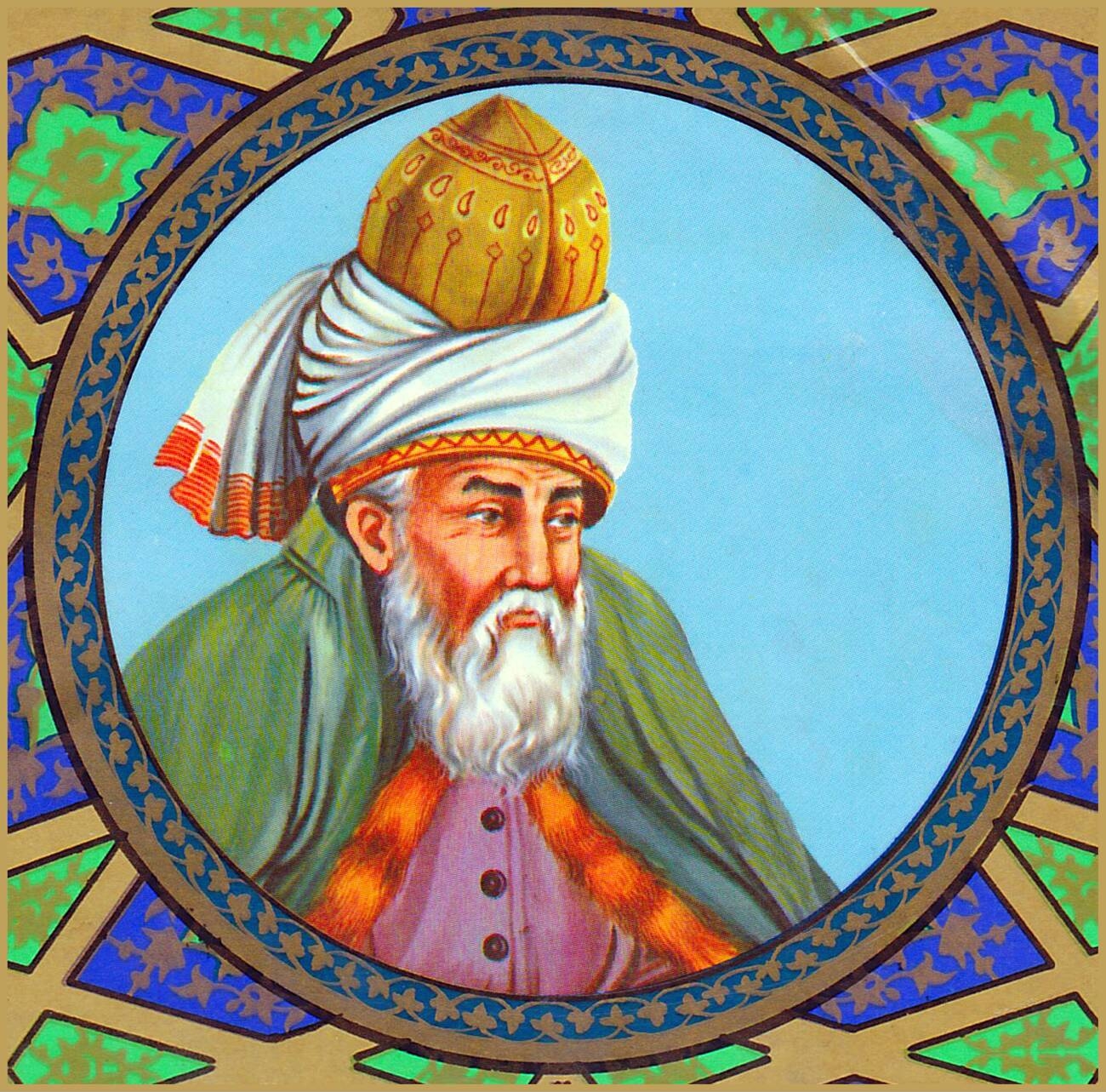
Rumi held a holistic view of spirituality, seeing it as a universal quest for understanding, love, and harmony with the cosmos. His approach to religion was inclusive, focusing on the shared spiritual ground across different faiths rather than the rituals and dogmas that separate them. For Rumi, the essence of all religion is the personal experience of the divine, which transcends traditional religious boundaries.
His teachings encourage a personal and direct encounter with the divine through love and devotion, rather than mere adherence to orthodox practices. Rumi believed that such an encounter could lead to spiritual liberation and enlightenment, a theme that he explored extensively in both his poetry and prose. He often used stories and parables to convey his messages, making complex theological concepts accessible to all.
Through his philosophical musings and profound teachings, Rumi invites us into a deeper engagement with our spiritual selves and the world around us. His views continue to inspire and influence not only those on a spiritual path but also anyone seeking greater meaning and connection in their lives. His message of love and unity remains as relevant today as it was in the 13th century, proving the timeless appeal of his insights into the human condition and the mysteries of the universe.
Rumi’s Legacy

Influence on Sufism and Beyond
Rumi‘s impact on Sufism has been profound and enduring. His teachings and poetry have not only shaped the practices and philosophies of Sufi traditions but have also permeated the broader spectrum of Islamic thought and spiritual discourse. Rumi’s emphasis on love, compassion, and the pursuit of spiritual truth has helped define the core principles of Sufism, making it accessible and appealing to a wider audience.
Beyond the confines of Sufism, Rumi’s ideas have influenced various other mystical traditions and philosophical schools around the world. His works have been translated into numerous languages, enabling his teachings to resonate with diverse cultures and spiritual seekers across the globe. This widespread appeal can be attributed to his universal messages of peace, unity, and understanding, which transcend religious and cultural barriers.
Contemporary Relevance and Global Impact

Rumi’s relevance in contemporary times is perhaps more pronounced than ever. His poetry and teachings offer solace and inspiration in a world often divided by misunderstanding and strife. In today’s globalized society, Rumi’s call for love and unity serves as a potent antidote to the conflicts and tensions that arise from cultural and religious differences.
Rumi has become a global symbol of interfaith harmony and spiritual wisdom. His works are utilized in various educational and cultural contexts to promote empathy and understanding among diverse groups. Additionally, Rumi’s poetry has been embraced by the arts, influencing numerous modern writers, musicians, and filmmakers, who find in his verses profound depths of emotion and insight.
Furthermore, Rumi’s teachings on personal growth, self-discovery, and the transformational power of love continue to inspire personal development seminars and spiritual workshops around the world. His concepts of breaking free from the ego and discovering the divine within are themes that resonate with contemporary spiritual movements and therapeutic practices.
Rumi in Popular Culture

Examples of Rumi’s Influence in Music, Literature, and Film
Rumi‘s profound influence extends beyond the boundaries of literature and spirituality into the realms of music, literature, and film, reflecting his universal appeal and enduring relevance. His poetry has been set to music by numerous artists across different genres, from classical compositions to contemporary world music. His verses have inspired musicians and composers who seek to capture the spiritual and emotional depths of his work in their melodies and lyrics.
In literature, Rumi’s poems and themes have been woven into the fabric of both fiction and non-fiction, resonating with authors who explore themes of love, mysticism, and the human condition. His stories and teachings often appear as motifs or guiding principles in novels and spiritual texts, bridging historical and cultural gaps between the 13th century and today.
Film and television have also embraced Rumi’s narratives and philosophy. Documentaries and feature films about his life and teachings have brought his story to a wider audience, highlighting his philosophy and the universal aspects of his messages. These cinematic interpretations help to disseminate his ideas widely, making them accessible to a global audience.
Notable Admirers and Interpreters of His Work

Rumi‘s work has attracted a wide array of admirers and interpreters from various walks of life. Among the most notable is the American poet Coleman Barks, whose contemporary translations of Rumi’s poetry have played a significant role in popularizing Rumi in the English-speaking world. Barks’s interpretations have introduced Rumi’s mystical insights in a language that resonates with modern readers, significantly impacting the perception of Rumi as a spiritual guide.
Other influential figures include Deepak Chopra, who has written extensively on Rumi’s spiritual teachings, and Madonna, who has incorporated Rumi’s poetry into her music, exposing her vast audience to his profound wisdom. In addition, the popularity of Rumi’s verses on social media platforms and in various cultural expressions underlines the broad and appealing nature of his messages.
BOOK ONLINE
Iran Hotels Online
Conclusion
Summary of Rumi’s Enduring Influence
Rumi‘s influence has remarkably transcended time, geography, and culture, establishing him as one of the most significant literary and spiritual figures in history. His profound impact is evident not only in the realm of Sufism but also across various facets of global culture—including literature, music, philosophy, and the arts. His works, particularly the Masnavi and Divan-e Shams-e Tabrizi, continue to be essential readings for those interested in spiritual growth, poetic beauty, and philosophical depth.
Through his compelling blend of mystical wisdom and literary excellence, Rumi speaks to the universal questions of the human condition, addressing themes of love, existence, faith, and the pursuit of truth. His messages of unity and peace resonate with a modern audience that finds relevance in his call for spiritual introspection and intercultural harmony.
Final Thoughts on His Philosophical and Cultural Significance

Rumi’s philosophical and cultural significance cannot be overstated. He has become a symbol of the power of words to transcend boundaries and unite hearts and minds. In a world often divided by differences, Rumi’s poetry and teachings serve as a bridge, offering a pathway to mutual understanding and respect. His emphasis on love as a transformative force and his celebration of the human spirit’s quest for the divine continue to inspire and influence people around the world.
As we reflect on Rumi’s legacy, it is clear that his work does more than just fill the shelves of the spiritually inclined; it enriches the lives of those who read his words, providing guidance, comfort, and a profound sense of connection. In this way, Rumi not only belongs to the past or to the realm of Sufism but stands as a timeless beacon of wisdom and unity in our global society.
References and Further Reading
Cited Sources
For a comprehensive understanding of Rumi‘s life and teachings, several primary sources and scholarly works are essential. Key references include:
- “The Essential Rumi” translated by Coleman Barks provides accessible translations of Rumi’s poems, capturing the essence of his thoughts in a modern voice.
- “Rumi: Past and Present, East and West” by Franklin D. Lewis offers an extensive biography of Rumi, detailing his life, works, and the cultural context of his times.
- “The Masnavi: Book One” translated by Jawid Mojaddedi is part of a series that brings one of Rumi’s greatest works to English-speaking audiences with scholarly precision and poetic grace.
These sources provide a solid foundation for those interested in delving into Rumi’s poetic and spiritual legacy, offering insights into both the historical context and the timeless themes of his work.
Recommendations for Deeper Exploration of Rumi’s Life and Works
To further explore Rumi’s philosophical insights and literary brilliance, the following are highly recommended:
- “The Sufi Path of Love: The Spiritual Teachings of Rumi” by William C. Chittick explores the philosophical underpinnings of Rumi’s works, offering a deep dive into his theological and mystical teachings.
- “Rumi’s Secret: The Life of the Sufi Poet of Love” by Brad Gooch is a biography that explores the personal and spiritual dimensions of Rumi’s life, giving readers a glimpse into the man behind the poetry.
- “Rumi: Bridge to the Soul” by Coleman Barks collects Rumi’s shorter poems, ideal for those looking to connect with Rumi’s teachings on a daily basis.
Read More
